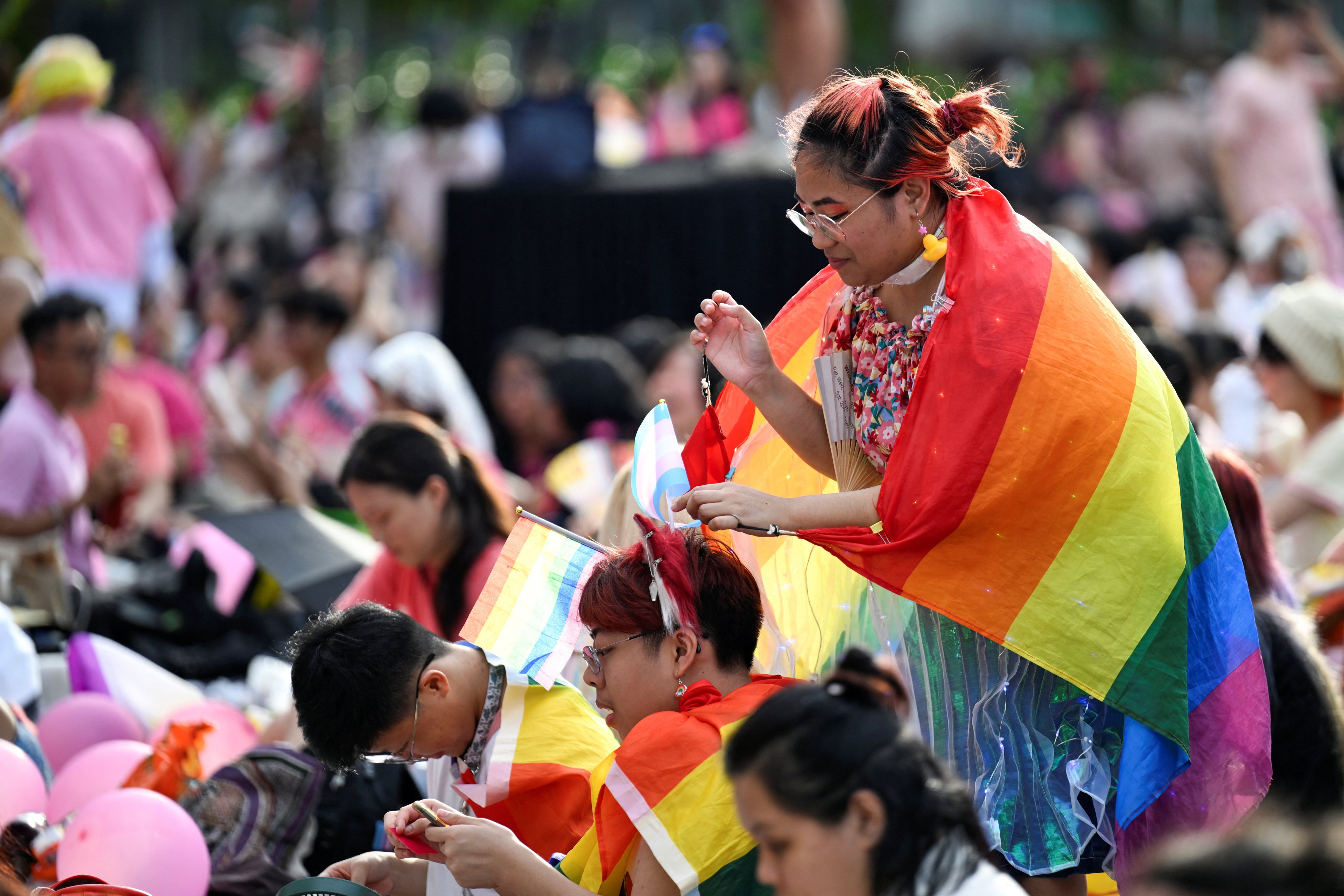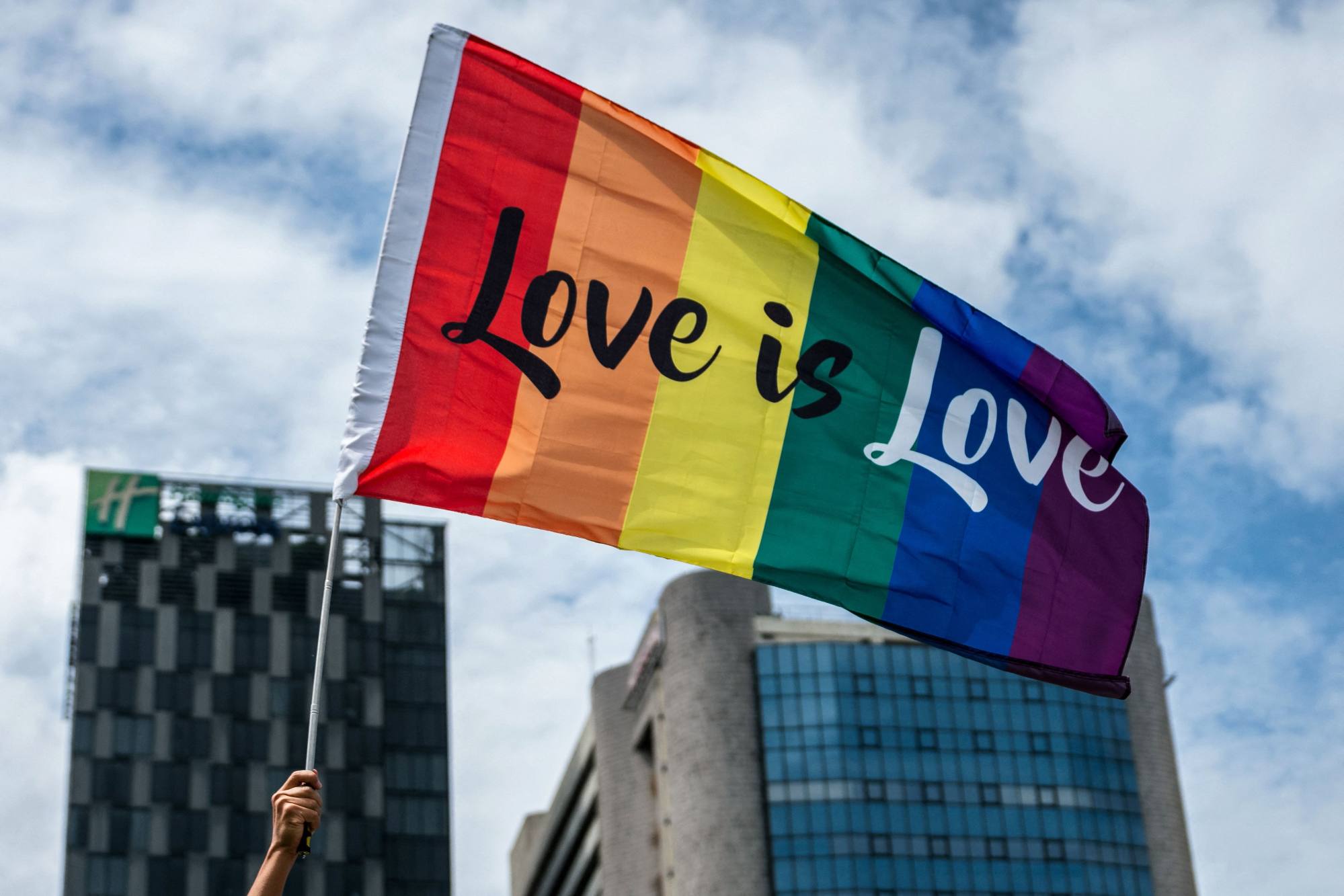Singapore radio code’s grouping of homosexuality sparks calls for review
Clause positioning homosexuality as a crime alongside paedophilia and incest ‘has no place in a post-377A Singapore’, actor and blogger say

A Singaporean actor and blogger have taken issue with a clause in the city state’s radio broadcast code that groups homosexuality with paedophilia and incest as “lifestyles” that are not allowed on the airwaves.
Former radio DJ Benjamin Lee, better known in Singapore as the blogger Mr Miyagi, said he asked the government to consider removing the clause and reviewing the code that all radio presenters had to sign as part of their contracts.
“I’m guilty of having signed this too, because, well, I wanted to keep my DJ job,” Lee wrote in a social media post on June 23.
Lee told This Week in Asia that he brought the issue up at the 40th anniversary of Reach, the feedback-gathering department of the Ministry of Digital Development and Information, in March but had yet to hear back.
“The document author’s intent is clear: to position homosexuality as a crime alongside paedophilia and incest. This has no place in post-377A Singapore,” Lee wrote.
In January 2023, Singapore struck off Section 377A of the Penal Code, which criminalised sex between men.
The clause, which comes under the content code for radio services, says that programmes containing content on lifestyles such as homosexuality, lesbianism, bisexualism, transsexualism, transvestism, paedophilia and incest should be treated with “utmost caution”.
“Their treatment should not in any way promote, justify or encourage such lifestyles. Explicit dialogue or information concerning the above topics should not be broadcast.”
Lee said he was a radio presenter from 2016 to 2023 and was asked to sign the undertaking every year as part of his contract.
“[Presenters] talk to each other and among colleagues, but then you don’t dare to bring it up to your supervisors, because you need the contract. We thought that with the repeal of 377A things would change, but they’ve kept it and that’s upsetting,” Lee said.
“That particular clause just goes against the spirit of it and the people you seek to protect, because the code is basically meant to protect everyone,” he added.
Actor Hossan Leong, meanwhile, wrote on LinkedIn that the pair had spoken to Prime Minister Lawrence Wong at the event about their concerns.
Leong noted that two of the “lifestyles” in the clause were crimes and wrote: “This clause has no place in the broadcast code of conduct.”
Wong and the Infocomm Media Development Authority, which oversees the radio content code, declined comment.
When former prime minister Lee Hsien Loong announced that the government planned to repeal Section 377A in August 2022, the explanation given was that there was a legal risk of the court striking down the law in a future challenge when parliament ought to have been the place to debate the law. He also acknowledged that societal attitudes towards gay people had “shifted appreciably”.
Singapore concurrently amended the constitution to protect the definition of marriage as between a man and a woman.
The communication and information ministry said then that policies on media content would not change with the repeal and lesbian, gay, bisexual and transgender (LGBT) media content would continue to warrant higher age rating. It also said the repeal did not mean that it was “changing the tone of society”.

Former radio hosts who spoke to This Week in Asia on condition of anonymity said while they did not recall the exact wording of the code they signed off on, homosexuality was a strictly banned topic. They also avoided talking about the personal lives of LGBTQ celebrities.
“I would imagine things have changed now, so I was shocked to see that rule still holds,” said one former presenter, who expressed disappointment that the repeal of 377A had not translated into broader policy changes.
However, another former host who worked in local radio for nearly 20 years called the clause “perfectly understandable” for Singapore’s society.
“A national broadcaster has a responsibility to look after a broad range of interests and not pander to the narrow range, however ‘woke’ the agenda,” said the former host.
Attitudes towards homosexuality in Southeast Asia are highly diverse. Thailand became the first country in the region to legalise same-sex marriage, while homosexuality is still illegal in neighbouring Malaysia.
Last year, Indonesia began debates on amending its broadcast laws to impose restrictions on any content depicting LGBT-related behaviour, with penalties ranging from written warnings to the revoking of licences.
A Blackbox survey last year on sentiments towards LGBT rights of 3,000 people from Indonesia, Malaysia, Philippines, Singapore, Thailand and Vietnam found that countries varied significantly. Thailand and Vietnam showed high support for greater LGBT rights, while respondents from Malaysia and Indonesia were less on board.
Blackbox said countries like Singapore, which were in the middle, “may face challenges of straddling between acknowledging societal changes and preserving traditional values”.